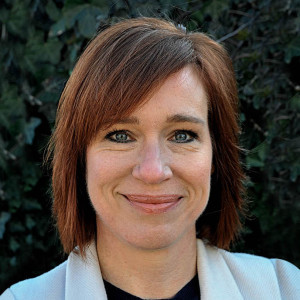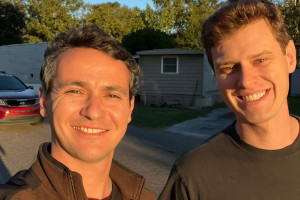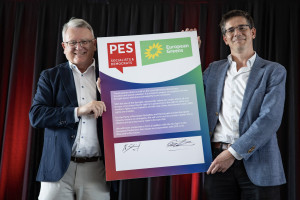Speech Marja Bijl op seminar Progressive Alliance
PvdA vicevoorzitter Marja Bijl was de afgelopen dagen in Denpasar, Indonesïe voor een seminar van de Progressive Alliance: ‘Living together in a New World, Building Solidarity and Social Justice’.
De Progressive Alliance is het netwerk van sociaaldemocratische en progressieve politieke partijen over de hele wereld. Ze willen hun samenwerking versterken en komen regelmatig bij elkaar om standpunten, kennis en ervaringen uit te wisselen. De PvdA is erg betrokken bij dit netwerk en werkt samen met gelijkgestemde partijen om de kernwaarden van vrijheid, rechtvaardigheid en solidariteit wereldwijd uit te dragen.
Tijdens de seminar werd bij diverse workshops onder andere aandacht besteed aan de ontwikkelingssituatie van Aziatische landen en werden mogelijkheden besproken om jongeren meer te betrekken bij de partij en bij de politiek in het algemeen. De conferentie was groots aangekondigd, met billboards langs de wegen en grote banners overal op het terrein. Marja sprak onder andere over de gedeelde geschiedenis van Nederland en Indonesië, de economische groei van Aziatische landen, dwang- en kinderarbeid en migratie.
19-09-2016 (Gesproken woord geldt)
Dear friends,
First of all I would like to thank our host, the PDIP, and the Progressive Alliance for organizing this seminar here today and tomorrow. I am deeply honoured and grateful for being given the opportunity to say a few words on behalf of my party, the Dutch Labour Party.
When I was a little girl, I lived in a small and quiet village near Amsterdam. It was a safe, nice place to grow up. No one was rich, no one was really poor. Everyone around me and my family, looked similar and spoke the same Dutch. The houses even smelt familiar.
One day – to our excitement – we got new neighbours. I was a very curious little girl, so after a couple of days I sneaked into their garden and went to the back door. This house smelt different, the people had darker skin and black hair, and the food on the table was very unfamiliar to me. Being this inquisitive girl, I started asking questions to those friendly looking people. They answered me in Dutch, but with a completely different accent. They gave me fried bananas, pisang goreng, and they told me they were from Indonesia.
Of course, afterwards, I asked my mum and dad what Indonesia was, and why they were not over there anymore, but in my village and my neighbours. I didn’t get very satisfying answers, or at least I don’t remember them.
Of course, in those days, I had no idea that their being our neighbours was the result of hundreds of years of colonialism, or – to put it differently – of a situation of continuous violation of human rights by a state. My state, my country.
When I went to secondary school and afterwards to university, to study history, I realised the enormity of what had happened in this country. And I most of the time I was deeply ashamed and shocked about these black pages of our – shared – history. Later in life I learned that you cannot always look with the eyes of today at the past. Views and practices change over time. But to be clear: that doesn’t make it right, the injustice that has been done during those years. Not at all.
In the Netherlands we are still working on getting to terms with this history. We should not forget our common history. And as a politician from the Netherlands, I am thankful for the willingness of all of us to cooperate to improve our world. And I would like to look at this common history as a chance to work on a common future.
With this in the back of our minds, it fills me with hope to see how much progress the world has made since that period. I see confident nations with flourishing economies in this region. New technologies are being invented and peoples conditions are being improved.
To a great extent, progressive politics and social democracy here in Asia and in the rest of the world have contributed to these developments. I feel proud to see so many representatives, of so many parties, from so many countries here today. Together we managed to build this new network, and we continue to cooperate and advance our policies. The Dutch Labour Party believes we are ready to take this next step with the Progressive Alliance.
This cooperation, building solidarity and social justice – as is the theme of our seminar – is perhaps more needed than ever before. There is a series of severe injustices that plague our world.
Inequality is continuing to increase worldwide. The financial and economic crises that still keep hold of Europe amplify this inequality. The youth unemployment in the Netherlands, but definitely in the Southern and Eastern European countries is strikingly high. We must act in order to prevent a lost generation.
Whereas Europe’s economy has been halting, Asia has seen the fastest growth in modern times. Hundreds of millions of people were able to be lifted out of absolute poverty because of this growth, which is an enormous achievement. Nonetheless, this has not occurred without economic and social strains, not in the least strains on the environment. If we want our children to have a bright future, we have to work together to address these issues.
We all remember the collapse of the Rana Plaza factory building in 2013 in Bangladesh. The 1.135 people who died during that accident became a symbol of what is wrong in the garment industry. Due to the globalized world, where you can buy products from countries far away and close by, we share the responsibility to prevent another Rana Plaza. Our minister for Foreign Trade and Development Cooperation, Lilianne Ploumen, urged the key players in Dutch fashion to take this responsibility and made them promise to improve the conditions for workers in their chains of production. I am happy about this step and we need a lot more of these victories.
Another issue that really shocks me, every time I think about it, is that forced labour is unfortunately not a remnant of the past I mentioned earlier. Every day, thousands of people still conduct labour unwillingly, in miserable circumstances. We can make a change, ratifying the ILO’s Protocol on Forced Labour would be the first step. Only seven countries in the world have done so up till now, neither has the Netherlands. Work must pay, work should be decent work and no one should be a slave in this day and age.
Furthermore, all children should be free from having to go to work. Children have the universal right to go to school, have time off to play with their friends and to grow up in a free and safe society. In studies of the International Labour Organization it is estimated that in this region alone 113 million children are working on a daily basis.
But I am not here to judge. I cannot start to imagine how difficult it must be for parents to send their children out to work, in order to provide the family income.
I am here to discuss whether there are solutions, since I sincerely belief we have a common responsibility in this. One of our MP’s, Roelof van Laar, has made an admirable first attempt. Since Europe is one of the biggest markets for these child labour products, he has worked on an initiative act to ban these products from the Dutch markets. The act will make the vendor of the product accountable if they nevertheless do try to sell those products. The vendor risks having to pay a fine and to provide for the education of the children that were found working in factories related to the products. An incentive to pay normal wages.
If we manage to tackle child labour, we might as well manage to create more formal jobs, very important for women as millions of them are still working in the informal sector, without rights. As I am vice-president of PES Women as well, it will not surprise you that equal rights for women and men are very fundamental to me. Nearly all over the world, women are in a disadvantaged position when it comes to social mobility, job opportunities, influence in politics, earnings etc. etc, unfortunately I can go on and on and on.
We cannot tolerate this, it must be at the top of our priorities. Let’s not forget that securing gender equality and decent work is not only in the interest of women and their families. It is in the interest of society as a whole. So, in my opinion, when we look for solutions, for the social injustice plagues that haunt us, gender should be integrated in the approach.
Just one more issue I would like to address. Migration and refugees, also a subject that is close to my heart. Some of you know that for many years, I have been spending my summers on the island of Lesvos in Greece. I know the islanders quite well and I have got dear friends over there. Last year this island was the focus of the world. Thousands and thousands of refugees landed on our beaches. We all did what we could, the world landed on our doorstep. People on the island are still trying to come to terms with what happened to them. And there are many places like Lesvos on the borders of Europe and around the globe.
Wars, like the one in Syria, make people flee their homes. Migration, forced through war and insecurity, through political persecution or through poverty, has never seen these proportions before. Since the Second World War, there have not been so many refugees. We have a historic task to protect them, to give them a safe home and a future. This is even more our duty for the most vulnerable among the refugees and migrants.
At the Global Progressive Forum Conference in Istanbul earlier this year, I was shocked to hear what it meant to be a female or a LGBTI refugee. When I coin the term ‘survival sex’ here, you all have an impression of the wrongdoings and injustice these people face daily. It brings shivers down my spine. To me it is clear that it is absolutely necessary to have an integrated gender approach when we look at how to deal with refugees and migration.
It is general knowledge that migrants are always among the most vulnerable within society. Whether it comes to refugees or to labour migrants; exploitation and trafficking is always around the corner.
I am fully aware of the tasks ahead, and I think so do you.
Let’s use this seminar to share our ideas,
Let’s encourage one another to take next steps,
And let’s cherish the Progressive Alliance and use it to improve our societies.
Thank you,




